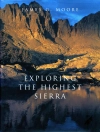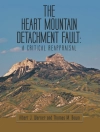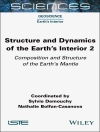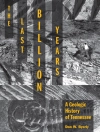This richly illustrated book reviews the geology, tectonics, sedimentary basins and strategic resources of North Africa in 21 chapters. Chapter 1 is a regional synthesis. Chapter 2 examines the deep crustal and upper mantle structure. Chapter 3 compares the West African Craton. Chapters 4, 5, 6, 7 deal with Pan-African-, Variscan (Hercynian)- and Alpine-Belts. Precambrian Geology of Hoggar Shield, north Central Africa will be addressed in Chapter 8. The North African Neoproterozoic and Phanerozoic sedimentary basins are the topic of Chapter 9. Phanerozoic magmatism and geodynamic framework of North Africa are addressed in Chapter 10. Chapters 11, 12 deal with petroleum geology and water resources. Important non-metallic- and metallic- ore deposits are presented in Chapter 13, 14, 15, 16. Chapters 17, 18 explore geothermal energy and other strategic resources. Chapters 19, 20 discuss seismicity, seismotectonics and Neotectonics, and Advances of exploration geophysics in North Africa. The lasttwo chapters (20, 21) focus on meteoric impact craters, geoheritage, geoparks and geotourism in North Africa.
Table of Content
1. Regional synthesis and progress on the geological research in North Africa.- 2. Deep crustal and upper mantle structures in North Africa: a review.- 3. The West African Craton.- 4. The Tuareg Shield and Trans-Saharan Orogenic Belt of Central Part of Northwest Africa: An Overview.- 5. The Arabian-Nubian Shield in Northeast Africa.
About the author
Zakaria Hamimi is a Tectonics and Structural Geologist, currently at Benha University in Egypt, and has worked previously at Sana’a University, Yemen (1995-1998) and King Abdulaziz University, Saudi Arabia (2003-2013). He obtained a BSc (distinction with Honors) in 1984 at Assiut University, a MSc in 1988 at Zagazig University, and a Ph D in 1992 in Structural Geology and Tectonics at Cairo University. His research focusses on the tectonic evolution of the Arabian-Nubian Shield via structural/microstructural, paleostress and strain studies, aligned with geological mapping, geomorphology and remote sensing methodologies. His research output exceeds 100 research publications in national and international journals and several books. Zakaria Hamimi is the president, and a founding member of the Arabian Geosciences Union, since 2012. He has been awarded the medal of the Egyptian Geological Society of Egypt in 2015, and the medal of the Arab Mining and Petroleum Association in 2016. His services to the profession include his roles as Associate Editor of the Egyptian Journal of Geology (1998-2002), the Arabian Journal of Geosciences (2016-now); the Egyptian Universities Promotion Committee, Supreme Council for Universities, Egypt (2016-2019); Secretary of the National Committee for Geological Sciences, Academy of Scientific Research and Technology (2016-2019), and later nominated for President of this Academic Committee in 2020; and the IUGS-Representative for Egypt in Cape Town 2016 and Thailand 2017.
Moulley Charaf Chabou is an igneous petrologist and geochemist at the Ferhat Abbas University of Setif in Algeria. He obtained at National Polytechnic School of Algiers an engineering degree in 1996, a Magister degree in 2001 and a Ph D in 2008. His current research interests include the study of the Central Atlantic Magmatic Province (CAMP) and ophiolites in North Africa, ultrapotassic and Paleo-Mesozoic magmatism in Algeria, impact craters and meteorites, geoheritage and application of remote sensing in geological mapping. His research output comprising some twenty scientific papers in international journals and books. Since 2017, Moulley Charaf Chabou is full professor and currently director of the Institute of Architecture and Earth Sciences at Ferhat Abbas University, Setif, Algeria. He is member of the Meteoritical Society since 2012.
Ezzoura Errami is the Dean of the Polydisciplinary Faculty of Safi. She is also a lecturer/researcher with a strong academic grounding in Earth Sciences and over 17 years’ experience in international geoscientific professional organizations. She is President of the African Association of Women in Geosciences, Coordinator of the African Geoparks Network, Vice-President of the Arab GU, Africa coordinator of IAPG, Council & Founding member of the South Asian Association of Women Geoscientists, Council member of IGEO, Regional focal point – Arabic countries & Africa, IUCN WCPA GSG…She also served as IUGS Councillor…Her current major research interest is geology, geodynamic, petrology, geoheritage, geoeducation, sustainable development and gender related studies in geosciences.
Abdel -Rahman Fowler graduated with B.Sc. (Honors, 1st class) in geology from Sydney University, Australia, in 1977. After experience in the uranium and tin exploration and mining industry in NSW, Queensland and Northern Territory, he obtained a Ph.D. in structure and tectonics at the University of New South Wales (UNSW) in 1986. He has instructed in structural geology and other geoscience disciplines at UNSW and La Trobe University, Victoria, and has served at the United Arab Emirates University since 1999. His main interests lie in structural geology and tectonics, but extend to stratigraphy/ sediment ology and geochemistry. He has con ducted research work in Australia, Egypt, Turkey and UAE, and has published more than 50 papers in international journals and has contributed to books dealing with the geology of the Arabian–Nubian Shield. He has received awards for research excellence at UAEU.
Nuri Fello a Senior Geologist with National Oil Corporation in Tripoli, and he was working with Several Oil Companies in Libya and IOC’s (Zueitina Oil Company, Repsol Oil Operations (Akakus), Petro-Canada (Suncor) and Petrobras Oil Company). In addition, Nuri has been working on the entire exposure for the Lowermost Silurian succession “Hot Shales” of the Ghat area in the Murzuq Basin, SW Libya. His work on both subject’s matter has led to issue more than 30 publications plus produce Two DVD’s about the source rock in Murzuq Basin, and geological petroleum system in Libya. In 2018 Dr. Fello, Chairman of Scientific Committee for the Benghazi International Conference of Oil and Gas (BIEOG2018). This event is an internationally distinguished event hosted in Benghazi City – Libya, October 24th – 26th 2018. (www.bieogexpo.ly). In 2009 Fello organized with Petro-Canada the first Geological Field Trip to Jabal Nafusah, NW Libya; and in 2008 Fello Organizing Committee Chairman in the First International Conference ‘Geo-Information Technologies to Support Sustainable Development in Africa – GITSDA’08’ which held in Tripoli at The Academy of Graduate Studies April 05th -07th 2008. Recently; December; 2020, Dr. Fello have been nominated as Libyan Represent (Focal Point) Head of the UNESCO Global Geoparks in Libya. He is Member of the International Association Sedimentology (IAS); Member of American Association of Petroleum Geology (AAPG); Member of the European Association of Geoscientists and Engineers (EAGE). Member of the Earth Sciences Society of Libya (ESSL). Member of the Global Environmental Facility (GEF) and Member of the Climate Changes Group in Libya.
Amara Masrouhi is a professor of structural geology at Geo-resources Laboratory, Water Research and Technologies Center of Borj Cedria (Tunisia) since February 2015. Currently under international cooperation contract between Tunisia and KSA and have a position of a Professor of Structural Geology in Faculty of Earth Sciences, King Abdulaziz University (KSA). Visiting professor at CEREGE in Aix-Marseille University (France) from 2011 to 2016. mains interests are tectonic processes in the Maghreb belts and the Arabian Nubian Shield. Early work focused on salt tectonics and developing models for the construction of the salt structures in Tunisia. Since 2013 a second research focus: tectonics modeling and deformation restoration.
Rémi Leprêtre specialized in the behavior and deformation of crustal domains, either in active settings or within intraplate domains (craton, intraplate belts). He works with thermochronology tools (AFT, AHe), geochemistry (organic matter) and the structural geology tools to decipher the evolution of his studied areas. He particularly studied the Northern Maghreb, in the Atlas belt, the alpine Tell-Rif systems and the vertical evolution of the West African Craton.












